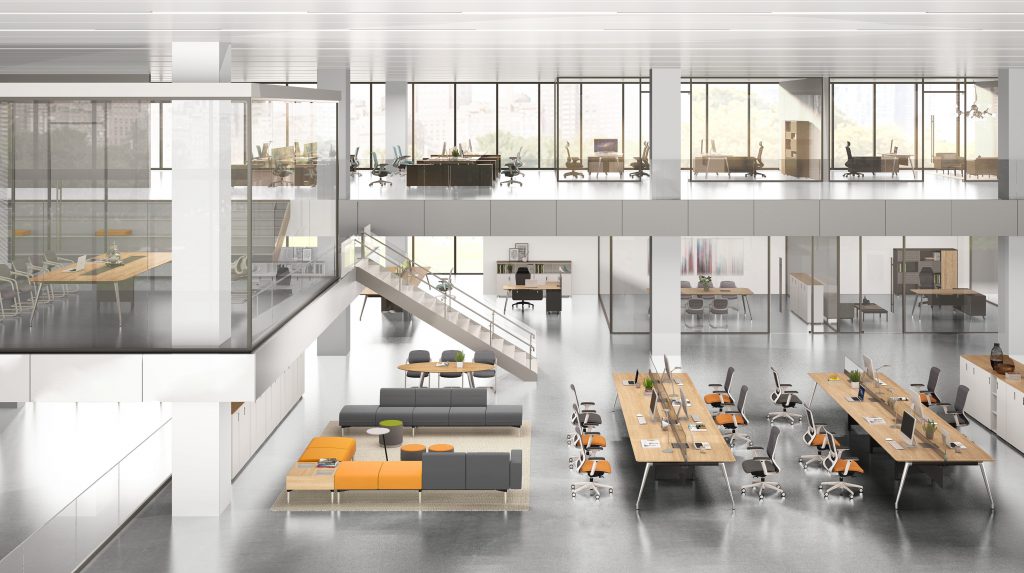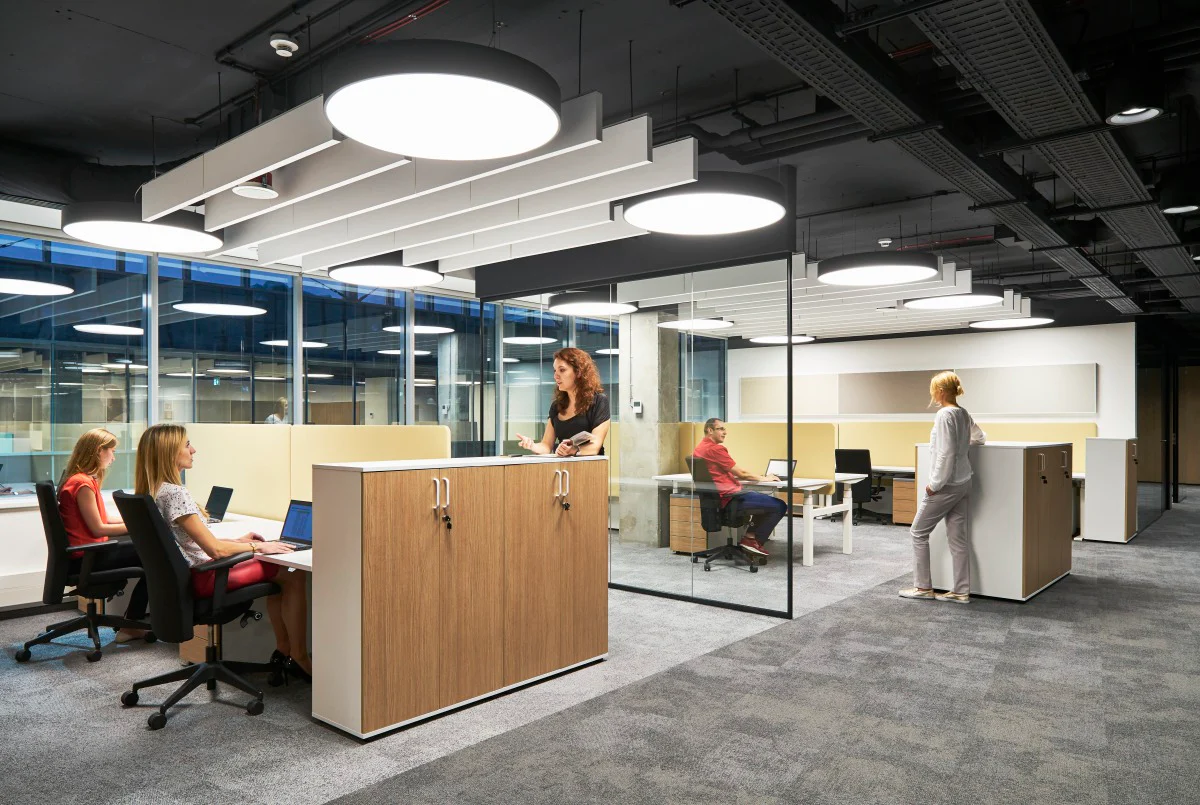Improving acoustics in your office is about more than making it a quiet place. Moreover, how quiet can you make the office, in the first place? With so many people in the office talking, walking, and handling materials, it seems like an uphill battle and an impossible task. Still, with the right technique on your side, it’s quite easy to make the place into a far more pleasant working environment.

Other than this, you might also have several questions. For instance:
- What’s the difference between soundproofing and fixing acoustics?
- Is improving acoustics worth your while?
- Do you improve acoustics differently in a rented place than in a place you own?
With all of this in mind and without further ado, here’s what you need to know on this subject.
Contents
It’s Not Just About Less Noise
Before we even continue, it’s important to understand that acoustics is not just about noise control and noise reduction. So, what is acoustics all about? You see, if you want less noise, you need to go with soundproofing. Acoustics are about creating an environment that will give you a better sound in the room.
Why is this important?
First of all, people in offices across the globe are holding online meetings all the time. In an office with poor acoustics, the sound may be imperfect despite even the best recording equipment.
Now, what if several people need to get this effect at the same time?
Working on reducing echo in the room by installing sound panels, investing in directional microphones, and reducing echo in the room will make a massive difference in this regard.
It’s also important to note that soundproofing the place takes a tremendous amount of work. It requires you to treat walls, floors, and ceilings. It may involve the layout of the room and even the type of furniture used in the area. For this reason, having a professional look into it is quite important.
So, do you need to improve your acoustics or soundproof your office space?
The truth is that you should do both. The majority of methods required to handle this often go hand in hand. There are even some methods that provide both of these perks at the same time. Also, the perks that these two methods provide work so well together, and since the cost is quite low there’s usually no reason to choose.
Why Does It Increase Productivity?
The first reason is an obvious one. If you’re yelling over each other during a conference call to send a message, you won’t have an as effective meeting. So, good acoustics improve overall communication.
Second, decent acoustics keep the noise confined to certain areas. This gives people more autonomy in their immediate workspace. In a way, it gives them a lot of privileges of working in a cubicle without any drawbacks. Disturbance from the unwanted speech is a serious problem in every workplace and better acoustics can help resolve the issue without erecting physical barriers across the area. As the open office layout becomes more and more popular in the business world, this (alternative) solution to its problems may become more popular, as well.
Background noise affects thought processes, which means that it may be a serious problem for creative members of your team. Even people working on mundane tasks may be more likely to make mistakes when distracted.
Noise is a powerful stressor and if you ignore it long enough, it can cause some serious problems for your staff. It may make them more easily agitated and less productive and even cause some long-term problems with their health. This means that your work attendance may drop significantly and that the number of days off due to sick leave may increase. Long-term exposure to loud noises may even result in a serious hormonal disbalance. Protecting your team from these things is what being a good leader is all about.
Renting or Owning Your Office Space
The biggest bottleneck when it comes to retrofitting your office space lies in the question of whether you’re renting or owning the space. If you’re owning it, there are fewer restrictions to what you can do. Nothing is off the table, and the majority of innovations will increase the value of the property in question.
If, on the other hand, you’re renting out the place, you’ll have to ask for permission for the majority of these projects. Also, they might not pay off unless you make a special contract with your landlord. You could, for instance, ask that everything you invest in soundproofing the place be deducted from your rent in the following months. The problem is that this might not be in their best interest, and they may just outright refuse.
Rented place
If you’re in a rented place, you could add thicker carpeting, add soundproofing paint to the wall, as well as place some partitions in the place. The reason behind this is the fact that the majority of these methods are inexpensive, and some might even be moved to the next office space. After all, you can just roll up your carpets and take them with you.
Another thing you can do is add couches and large plants. These will act as barriers, quite similar to the way cubicle walls would. The big difference is that they don’t completely obstruct the view (thus making people feel isolated). This too is something that you can move if you decide to leave.
Owned place
On the other hand, if you’re building your own office space, or renovating an existing one, you have so many options. You can pick a material with a high noise reduction coefficient, place electronics strategically, and even determine if the windows need covering.
A great middle ground comes in the form of acoustic panels. While a permanent installation, they’re not as expensive as people expect them to be. Because of this, as well as the value that they provide, it’s fairly easy to understand why, even in a rented place, they would quickly give you the ROI that you were looking for.
Wrap Up
In the end, fixing your office acoustics helps you eliminate one of the biggest sources of noise pollution there is. By eliminating distractions, you’re actively reshaping the structure of your office and providing a more pleasant working environment for everyone. In other words, it’s both smart and ethical at the same time (a win-win).




